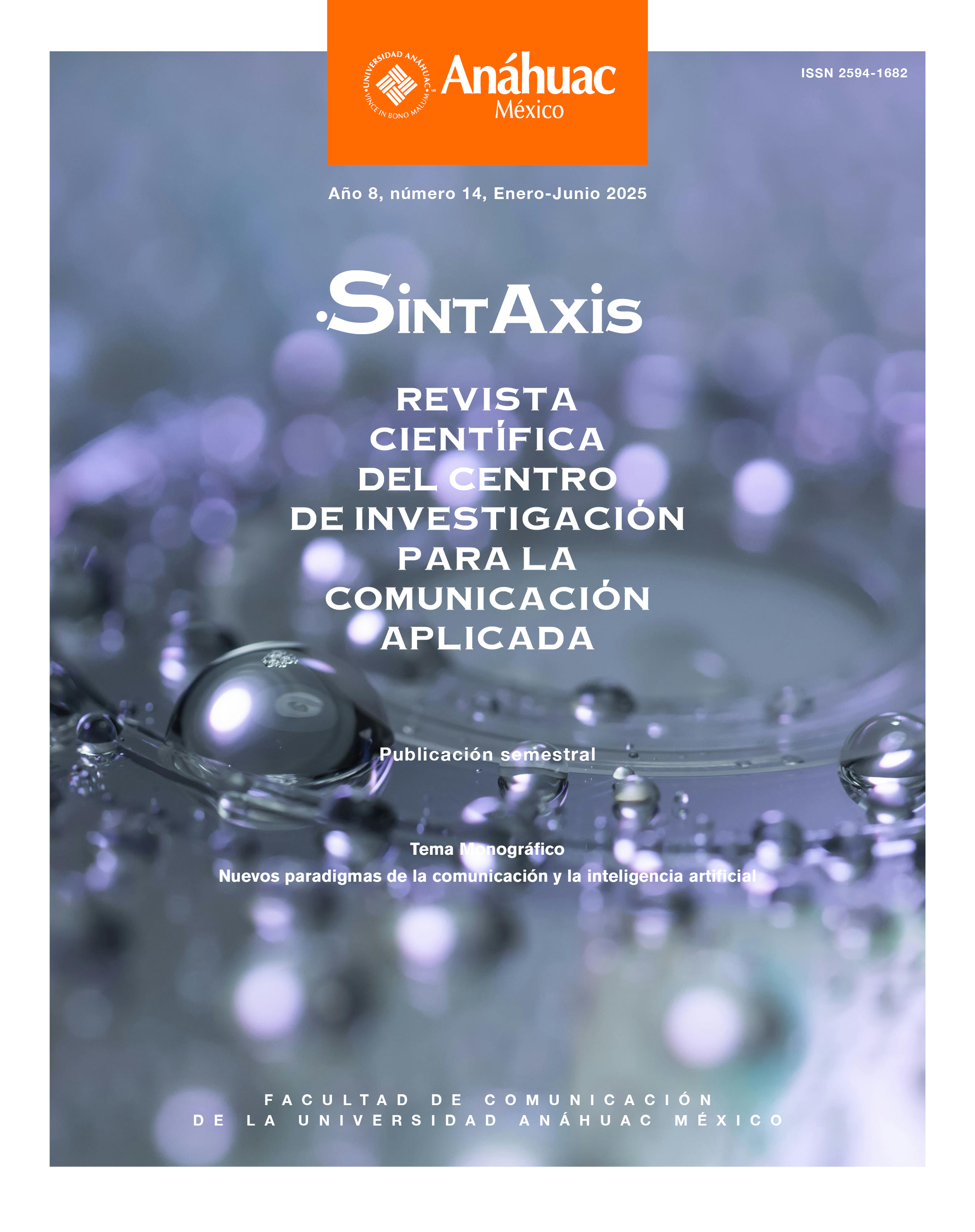Artificial Intelligence and Gender Equality. Historical Perspective of Cultural Biases and their Impact on Communication and Information Technology
Main Article Content
Abstract
Humanity finds itself in constant evolution from different aspects. With that evolution, there is the development of technology and communication. With this technology and communication evolution, we can find what today we know as Artificial Intelligence. In that sense, aside of a technology information historical background, it will be done a pondering about how these developments in technology and communications, specifically from Artificial Intelligence, has affect the contemporary society due to the most recent advances are of new rising for the field of humanities and social sciences. For that reason, it has been use a qualitative methodology for its analysis in order to achieve a conclusion that could be used for further studies. Moreover, this article will be emphasis the cultural bias base on gender equality with the intention to avoid the historical inequality that has existed between men and women throughout human history.
Downloads
PLUMX Metrics
Article Details

This work is licensed under a Creative Commons Attribution-NonCommercial-NoDerivatives 4.0 International License.
The author keeps the property rights with no restriction whatsoever and guarantees the magazine the right to be the first publication of the work. The author is free to deposit the published version in any other medium, such as an institutional archive or on his own website.
References
Agenjo-Calderón, A. (2021) ”Genealogía del pensamiento económico feminista: las mujeres como sujeto epistemológico y como objeto de estudio en economía”, Revista de Estudios Sociales, 75, 42-54. https://doi.org/10.7440/res75.2021.05
BID (2023). IA Generativa. Banco Interamericano de Desarrollo. https://publications.iadb.org/es/publications/spanish/viewer/Tech-Report-IA-generativa.pdf
Barrera Arrestegui, L. (2012). “Fundamentos históricos y filosóficos de la inteligencia artificial UCV-HACER”. Revista de Investigación y Cultura, 1(1), 87-92. https://doi.org/10.6018/riite.594461
Barron, M. y Nuama, E. (2024) “Como reducir la barrera de acceso a la inteligencia artificial? Derribando barreras para garantizar el liderazgo y la participación de las mujeres en la Quinta Revolución Industrial”. Banco Mundial. https://blogs.worldbank.org/es/education/Bridging-the-AI-divide-Breaking-down-barriers
Benítez Eyzaguirre L. (2019). “Ética y transparencia para la detección de sesgos algorítmicos de género”. Estudios sobre el Mensaje Periodístico, 25(3). https://doi.org/10.5209/esmp.66989
Branowski, J. (1979) El ascenso del hombre. Fondo Educativo Interamericano. Castells, M. (1996) “La era de la información. Economía, sociedad y cultura”. México Siglo XXI. México.
Degryse, C. (2001) “La economía digital y sus implicaciones socioeconómicas y laborales”. Gaceta Sindical, Nueva etapa, 27, 119-128. https://dialnet.unirioja.es/servlet/articulo?codigo=5778380
Castaño, C. (2001). “La brecha de género en la 4ª revolución industrial”. Gaceta Sindical, Nueva etapa, 27, 97-106. https://dialnet.unirioja.es/servlet/articulo?codigo=5778378
Díaz, F. (2020). “Simone de Beauvoir: una breve revisión a los orígenes del feminismo”. Revista Thélos, 11, 20-44.
Eisenstein, E. (1994). “La revolución de la imprenta en la edad moderna europea. Madrid, Akal.
Freres, M.M. (2021). “Sesgo de género en la inteligencia artificial: “de tal palo, tal astilla”, Revista Nueva Época, 57, 95-116. https://doi.org/10.18041/0124-0013/nuevaepoca.57.2021.9107
Grande M, Cañón, R., e Cantón, I, (2016). “Tecnologías de la Información y la Comunicación. Evolución del concepto y características”, International Journal of Educational Research and Innovation (UERI), 6, 218-230. https://dialnet.unirioja.es/servlet/articulo?codigo=5732766
Guadarrama, L. y Valero, J. (2009). “Tecnologías de la Información y la Comunicación [TIC] desde el concepto de calidad de vida”, Convergencia. Revista de Ciencias Sociales, 16, 207- 224. https://www.researchgate.net/publication/43071456_Tecnologias_de_la_Informacion_y_la_Comunicacion_TIC_desde_el_concepto_de_calidad_de_vida
Jiménez Vargas, P. J. (2021). “Los cambios y desafíos que plantea la fiscalidad de la economía digital en el contexto internacional”. Cuadernos de derecho transnacional, 13(2), 289-328. https://doi.org/10.20318/cdt.2021.6258
Leyva-Vázquez. M, Smarandache, F. (2018). “Inteligencia Artificial: retos, perspectivas y papel de la Neutrosofía“, Revista dilemas contemporáneas: educación, política y valores. vi, 1-16.
López, B. (s.f.). “Introducción a la Inteligencia Artificial”. Instituto Tecnológico de Nuevo Laredo. https://nlaredo.tecnm.mx/takeyas/Articulos/Inteligencia%20Artificial/ARTICULO%20Introduccion%20a%20la%20Inteligencia%20Artificial.df
Mancilla, M. (2011). Reseña de “La revolución digital y la sociedad de la información” de Guimar Salvant Martinrey y Vicente Serrano Marín. Revista Austral de Ciencias Social, 20, 121-128.30 inteligencia artificial y equidad de género. una perspectiva... – guzmán gómez
Misa, T. (2004). Leonardo to the Internet: technology y culture from the renaissance to the present. Baltimore; London, Johns Hopkins University Press.
Musson y Robinson (1969). Science and technology in the industrial revolution. Manchester: University Press of Manchester.
Neira Martínez, J. (2005). “La adquisición del lenguaje y la formación de la personalidad”. Magister, 19, 249–258. https://reunido.uniovi.es/index.php/MSG/article/view/13948
Rojas, R. (2001). “Un análisis del concepto sociedad de la información desde el enfoque histórico”. Información, cultura y sociedad, 4, 9-22.
Roca, A. (2016). “¿Una nueva revolución industrial? Una perspectiva histórica”. Gaceta Sindical, Nueva etapa, 27, 39-43.
Sánchez-Torres et al. (2012). “La Sociedad de la Información: Génesis, Iniciativas, Concepto y su Relación con Las TIC”. Revista UIS Ingenierías, 11, 113-129.
Salvat, G. y Serrano, V. (2011). La revolución digital y la sociedad de la información. Comunicación social.
Universidad de Externado de Colombia (2023). Inteligencia artificial: Una perspectiva de género. Universidad de Externado de Colombia. https://zero.uexternado.edu.co/inteligencia-artificial-una-perspectiva-de-genero/
UNAM (s.f). Derechos de tercera generación. Universidad Nacional Autónoma de México. https://archivos.juridicas.unam.mx/www/bjv/libros/4/1531/10.pdf
Viteri. M. y Gómez-Pineda, M. (2023). Inteligencia artificial y equidad de género: un espejo de nuestras sociedades. Banco Interamericano de Desarrollo. Esta

